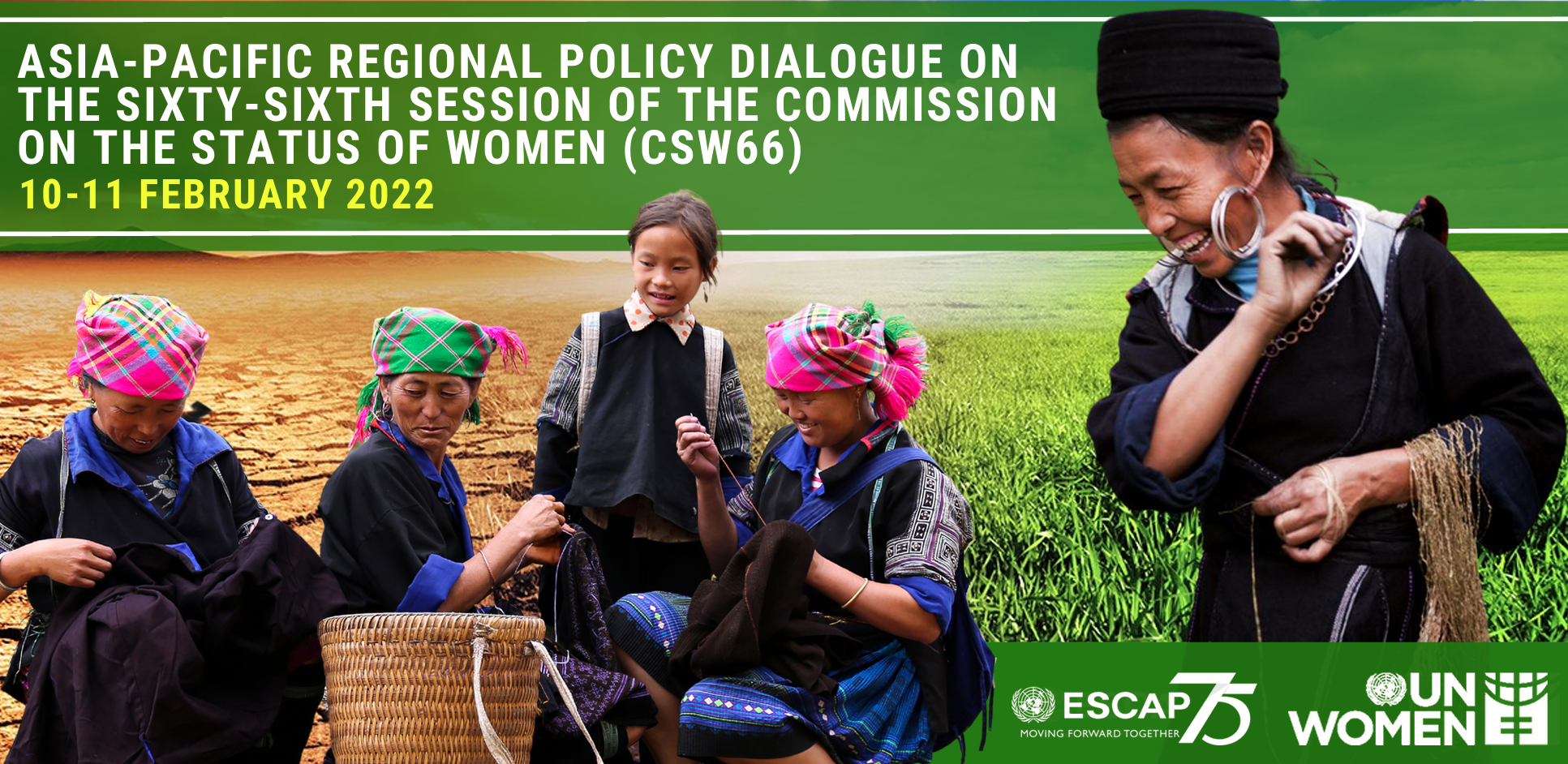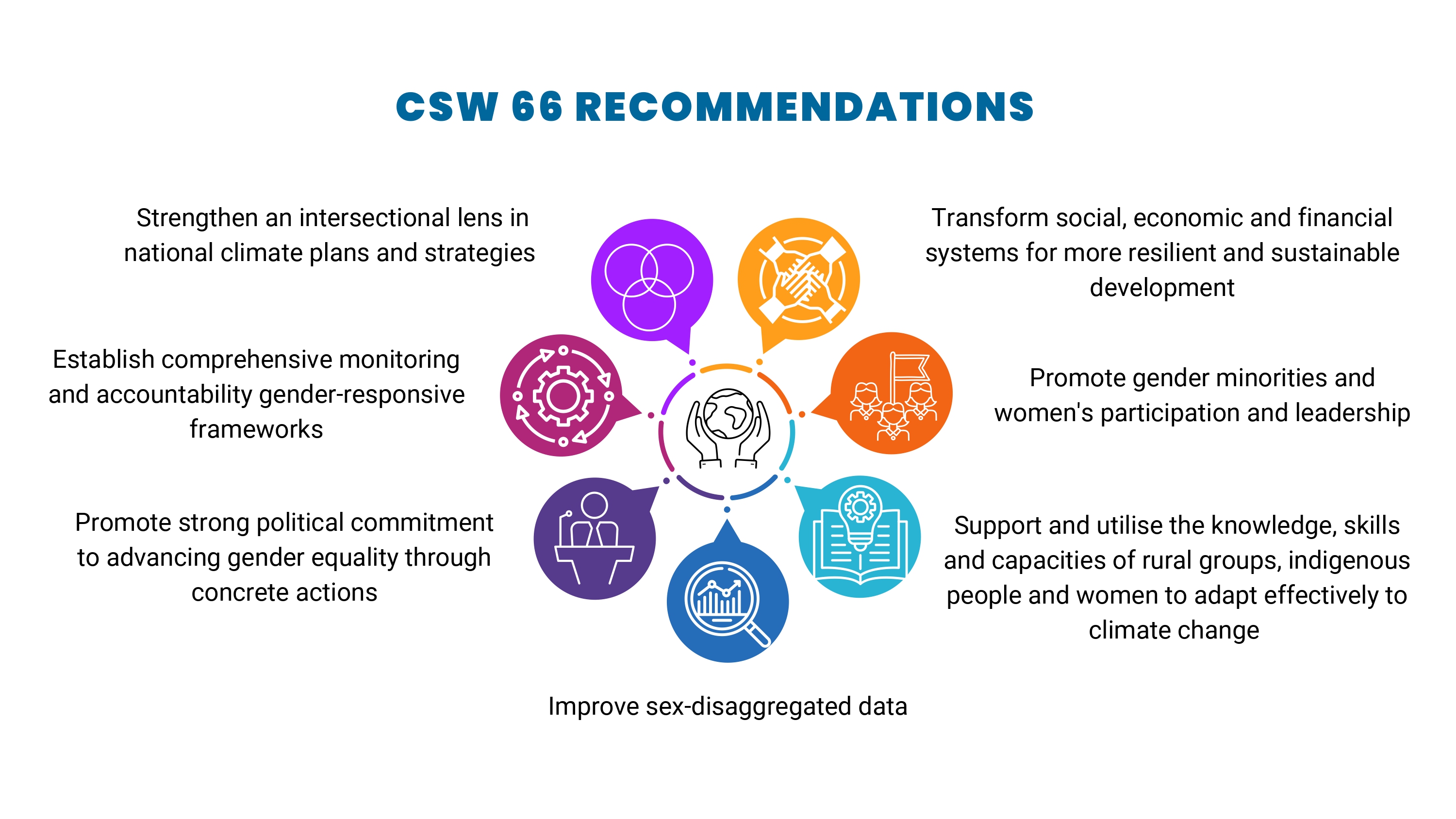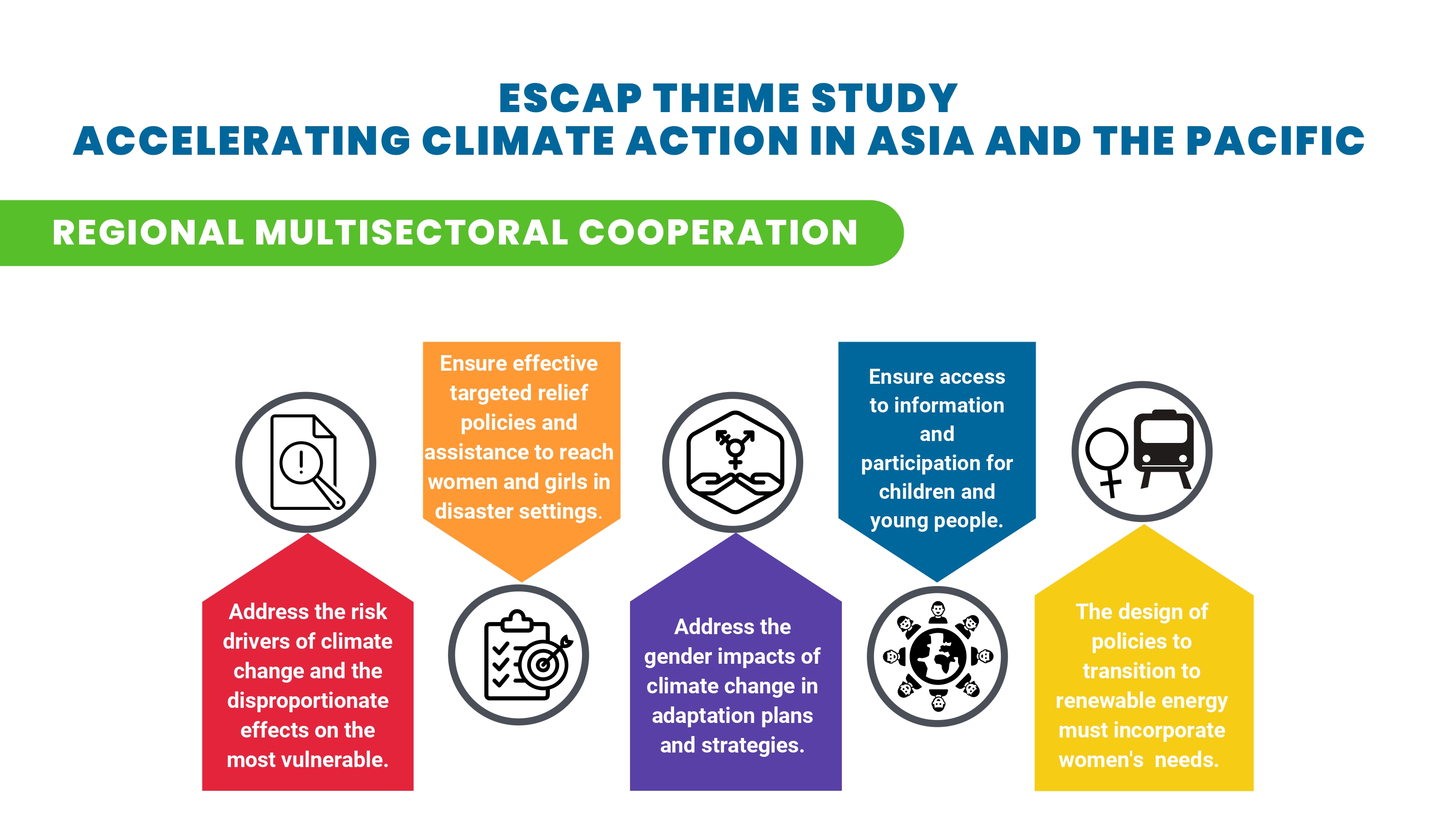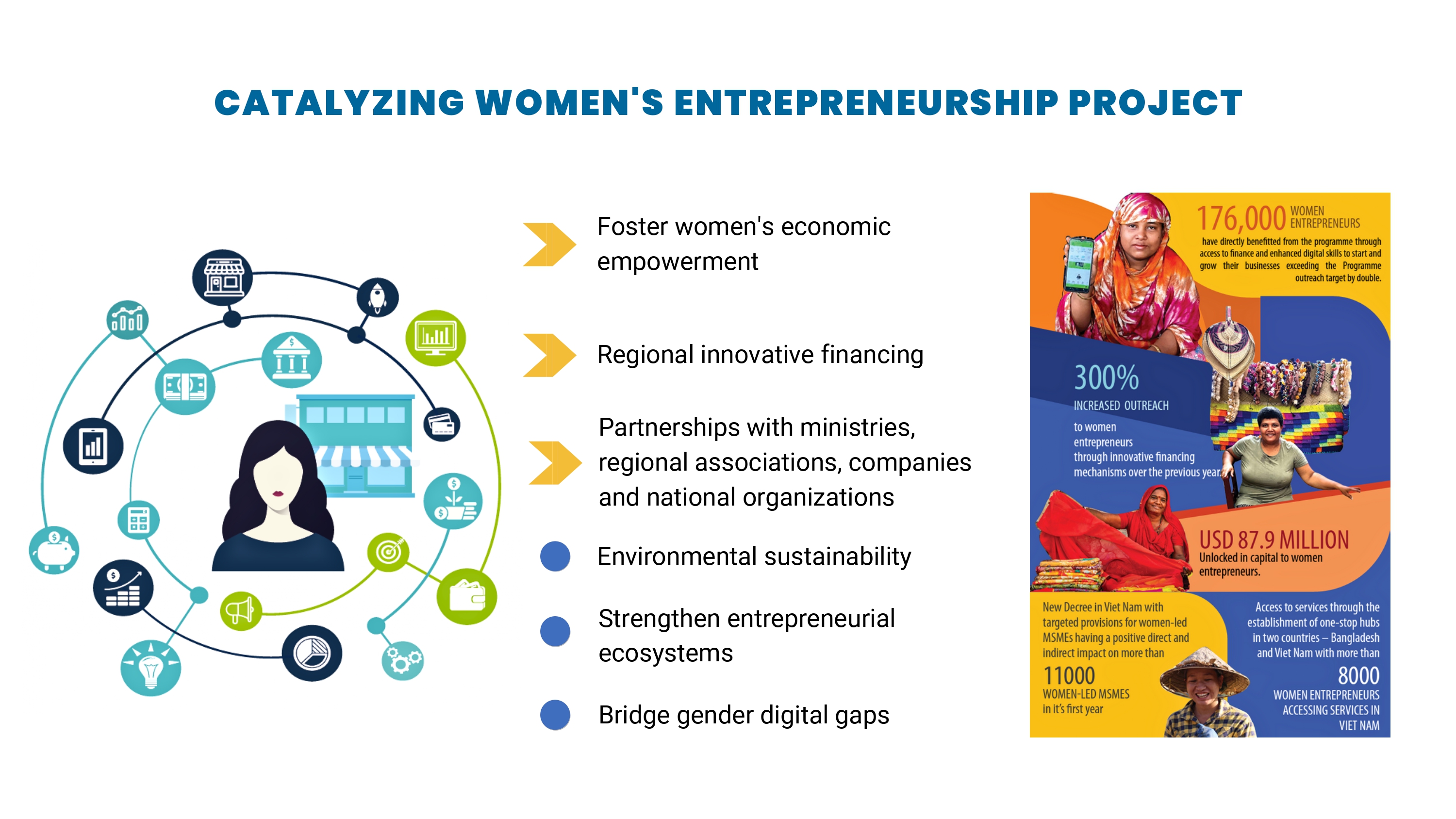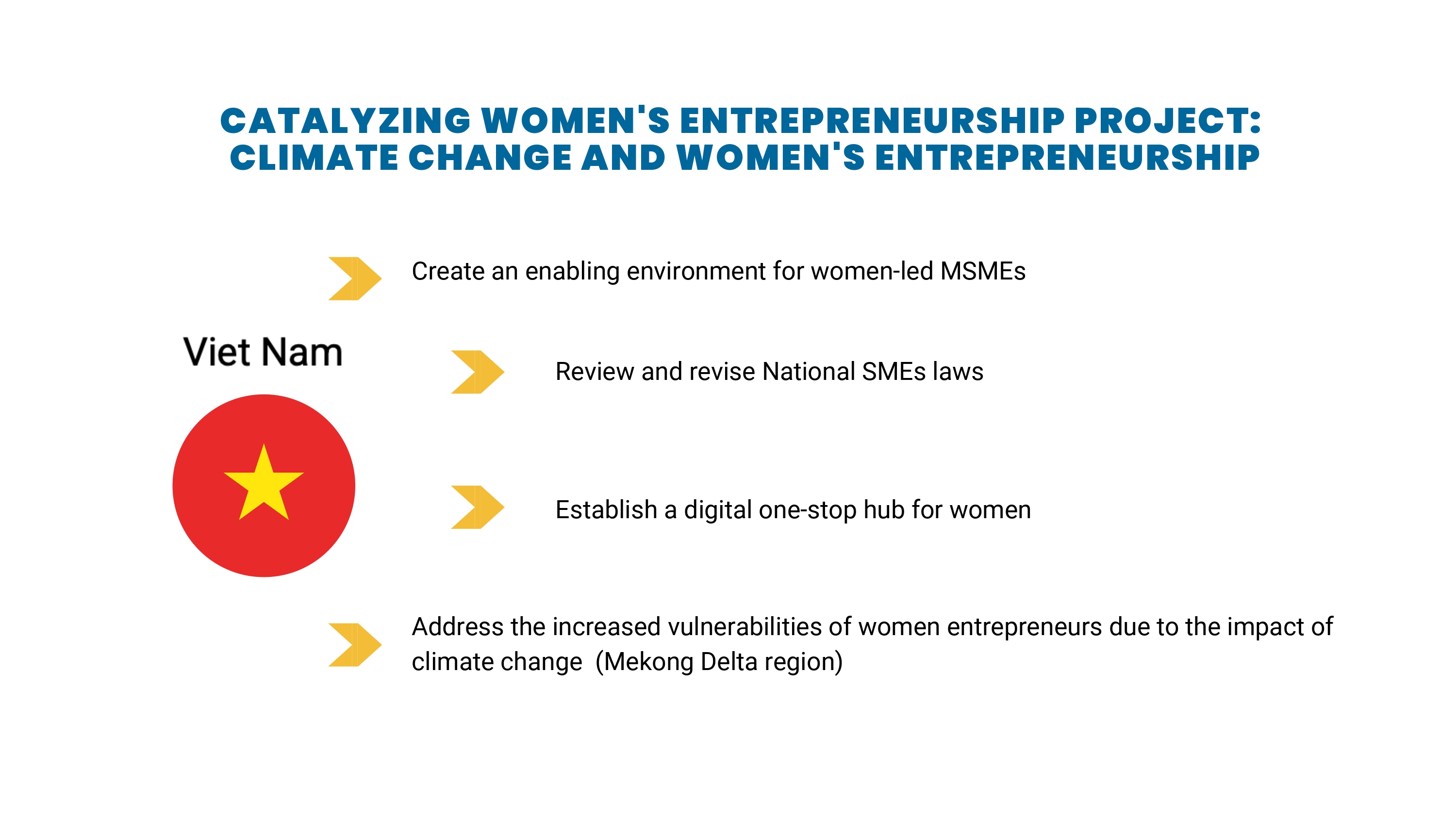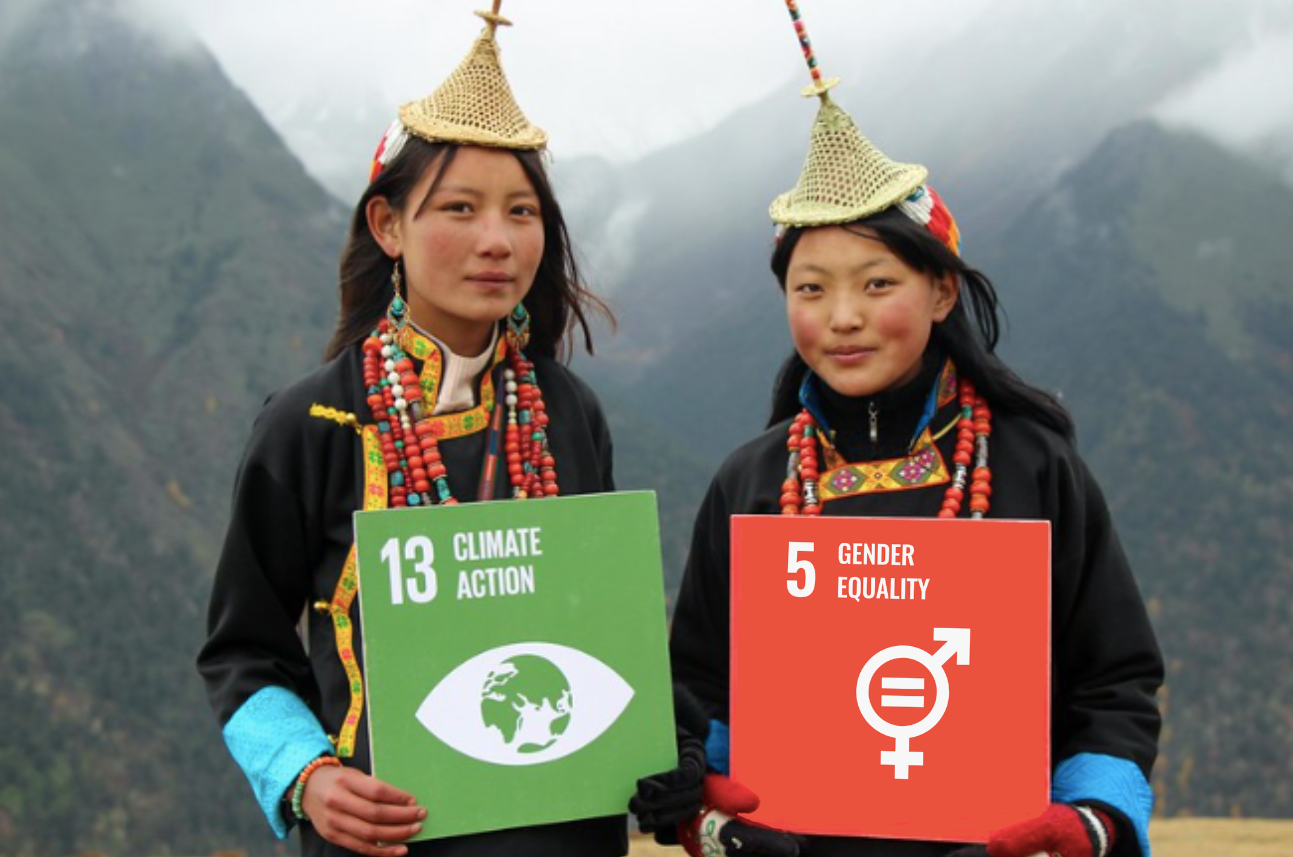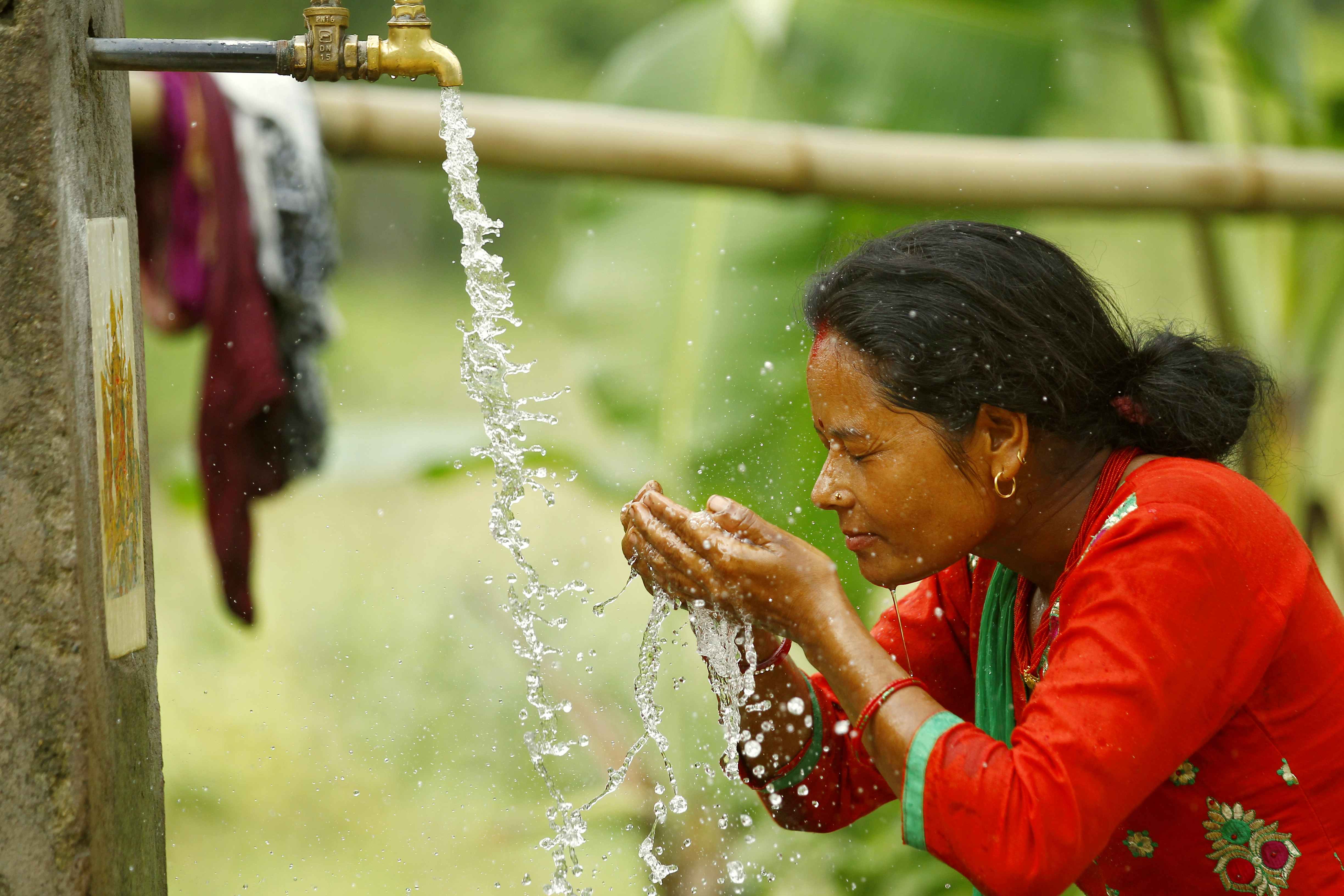

Gender and the Environment
The intersection between gender and the environment is key to promoting the Sustainable Development Goals. Women play a key role in the management, conservation, exploitation and utilization of natural resources, despite having limited access to and control of these resources.
In recent decades, social progress and economic prosperity in Asia and the Pacific have been jeopardized by impactful environmental challenges and climate change has exacerbated women, girls, gender minorities and other vulnerable group's intersectional vulnerabilities.
© UN Women/Vu Minh Hieu
Gender Equality and Climate Change in Asia and the Pacific
The Asia-Pacific is the most disaster-prone region in the world and women, girls, gender minorities and other vulnerable groups are disproportionately affected by natural disasters and climate change. Compounding factors such as losses in agriculture due to catastrophes combined with additional unpaid care and domestic work caused by climate change pose unique threats to women's livelihoods, economic independence, well-being, health and safety.
Despite a series of announcements from Asia-Pacific countries to reach net-zero emissions by mid-century, current ambitions as set out in the nationally determined contributions (NDCs) fall short of what is needed to reach the targets of the Paris Agreement, the Sendai Framework and the 2030 Agenda for Sustainable Development. To advance a green economy and the transition to sustainable food systems in the region is crucial to ensure women's participation and equal representation in decision-making in climate action.
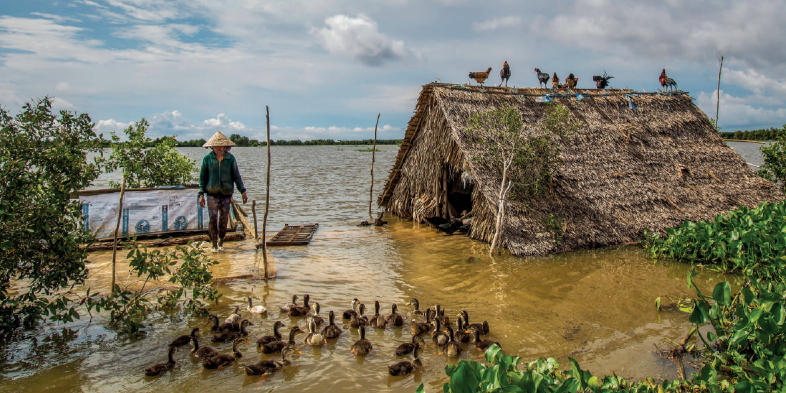
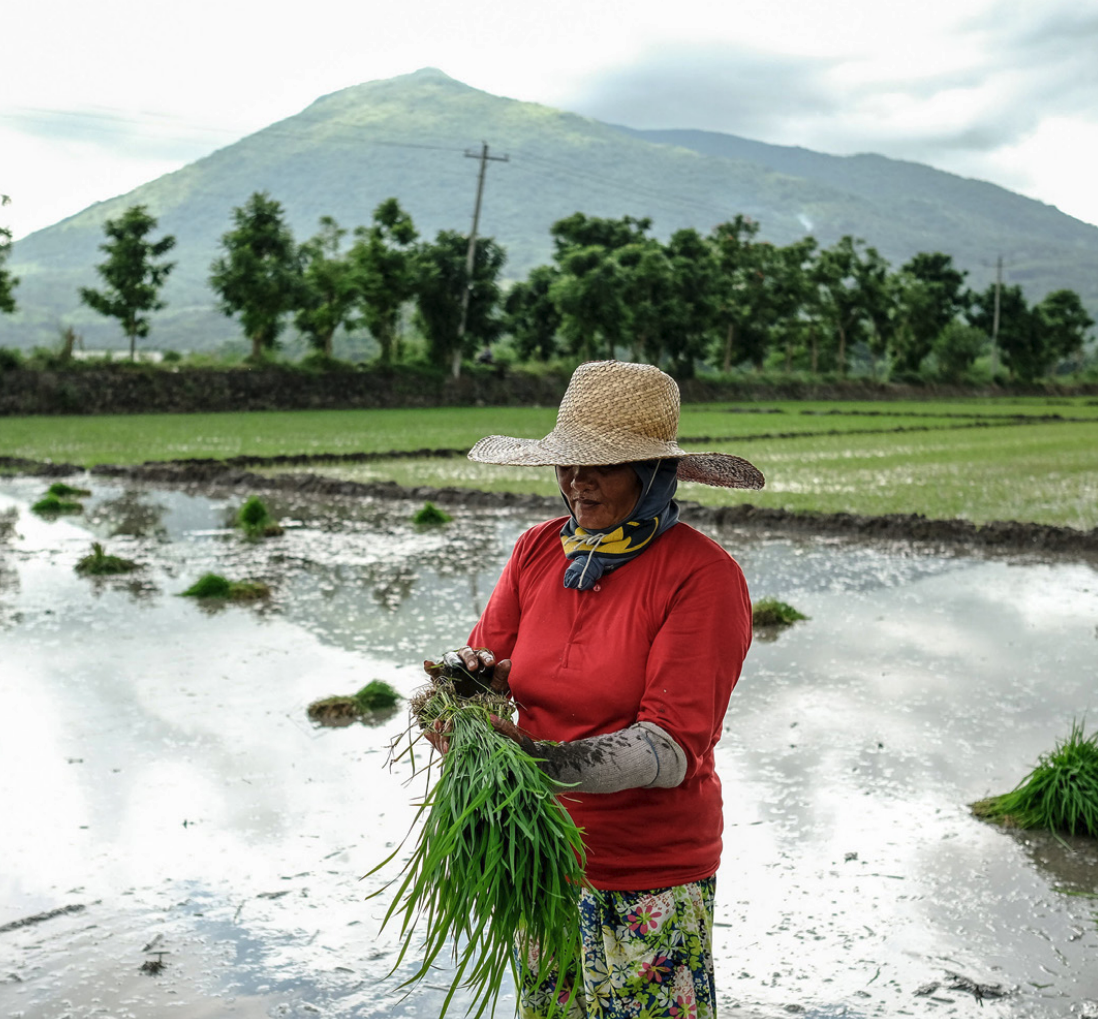
Our Work on Gender and Climate Change
Towards supporting the implementation of the 2030 Agenda, ESCAP is strengthening regional partnerships and promoting gender-responsive climate action in the region. ESCAP is also developing a series of knowledge products on the gender dimensions of sustainable development and climate change to examine the gender-environment nexus and enhance the promotion of policy recommendations in our regional cooperation.
To encourage the leading role that women and girls represent in climate action, ESCAP's work is focused on proposing policy recommendations that advance gender-differentiated measures in climate change action, enhance equal access to resources and agricultural sustainable development, promote care-related policies, and ensure women’s participation as well as representation in climate decision-making.
©FAO
ESCAP's Work on Gender-Responsive Climate Action in Asia and the Pacific
Global Commitments on Climate Change and Gender Equality
Knowledge Products


